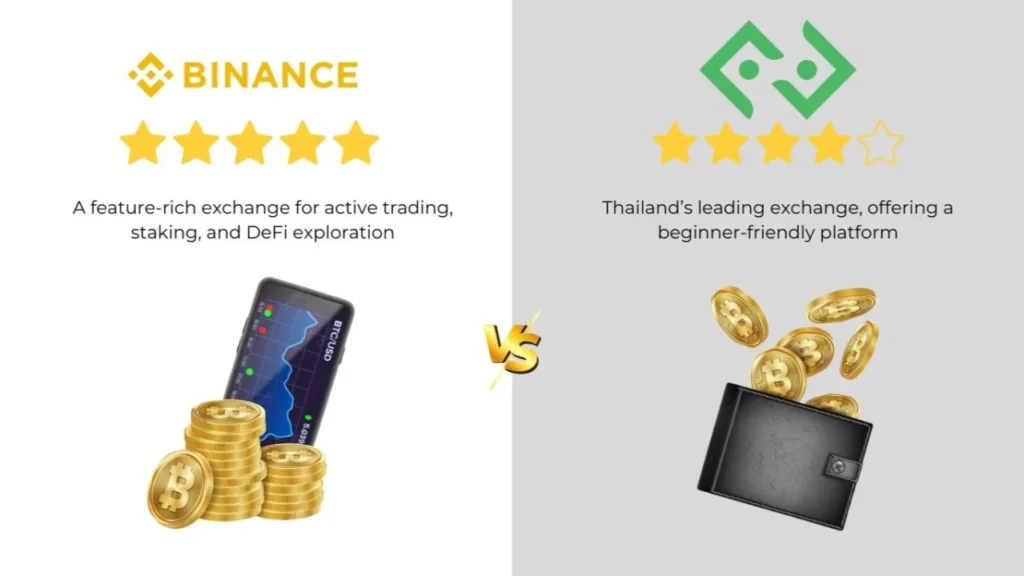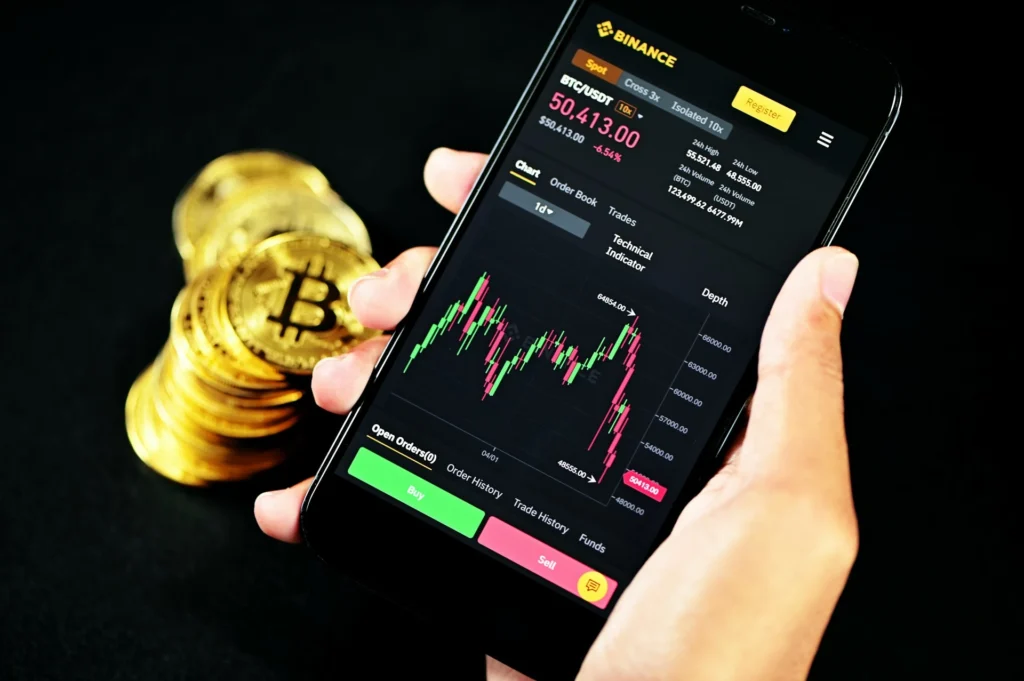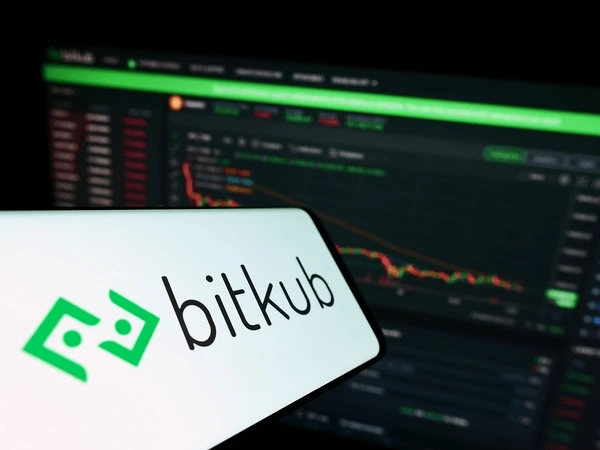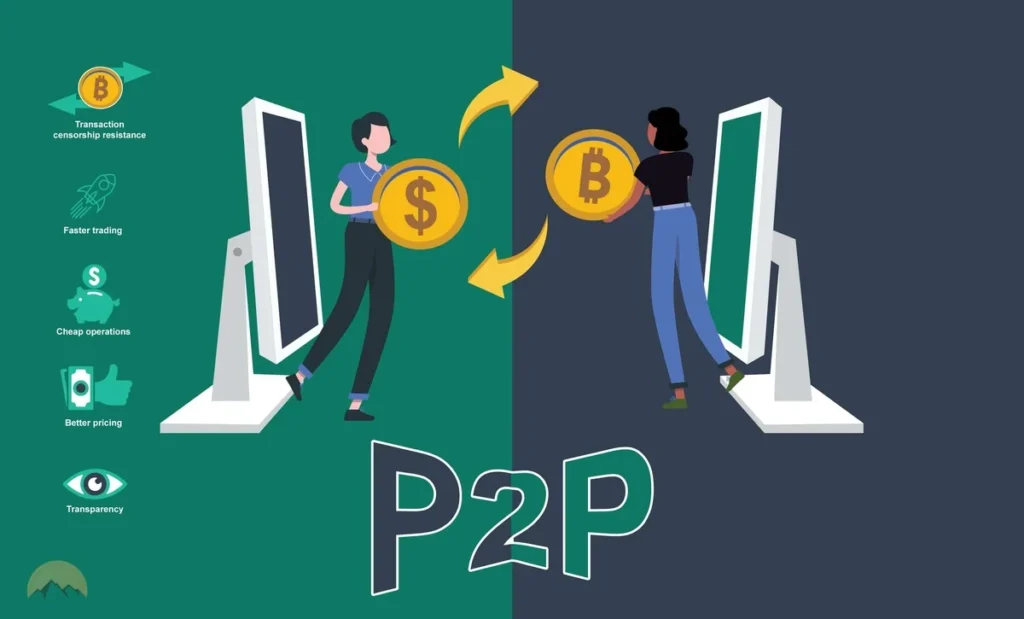If you’re planning to get into crypto trading in Thailand, you’ve likely narrowed it down to two major players: Binance vs Bitkub Thailand. They both serve Thai users—but how you use them, what you get, and which one suits you best can be very different.
This tutorial-style article will walk you through how to evaluate and use both platforms, step by step. Whether you’re a total beginner or looking to expand beyond local exchanges, you’ll leave with a clearer direction.
Step 1: Understand the Core Differences about Binance vs Bitkub Thailand
Let’s start with the basics.
- Binance is a global crypto exchange. It offers hundreds of coins, advanced trading tools, and a wide user base. It’s best for users who want variety, flexibility, and low fees.
- Bitkub is Thailand’s leading local exchange. It’s licensed by the Thai SEC, supports baht directly, and is tailored for ease of use within the country.
Think of it like this: Binance is a Swiss army knife. Bitkub is a sturdy kitchen knife. Different purposes, both useful.

Step 2: Set Up Your Account (What to Expect)
For Bitkub:
- Visit bitkub.com.
- Sign up with your Thai ID (or passport if foreigner).
- Complete KYC — this includes uploading your ID and verifying with a short video.
- Link your Thai bank account for deposits.
For Binance:
- Head to binance.com.
- Sign up with your email or phone number.
- KYC is also required — passport, selfie, address proof.
- Since Binance doesn’t support THB directly, you’ll need to deposit crypto or use P2P to convert baht into USDT or BTC.
If you’re looking for fast fiat transactions, Bitkub has the upper hand.
Step 3: Compare the Fees and Hidden Costs about Binance vs Bitkub Thailand
- Binance:
- Spot trading: 0.1%
- Discounts available using BNB
- P2P exchange has variable fees depending on the seller
- Bitkub:
- Flat 0.25% trading fee
- Local bank transfers are free or very low cost
If you’re a frequent trader, those lower Binance fees can add up to real savings. But Bitkub keeps it simple — no tokens, no juggling fee tiers.

Credit from : Money Buffalo
Step 4: Evaluate Platform Usability (UI/UX) about Binance vs Bitkub Thailand
Binance has every tool imaginable, but that comes with a learning curve. You’ll see futures, options, staking, launchpads… and a lot of buttons you may not touch for months.
Bitkub, on the other hand, is built with Thai users in mind. It’s available in Thai and English, the interface is clean, and even the trading view is stripped down to essentials.
If you’re a first-timer, you’ll likely feel more at home on Bitkub. But if you’re aiming to level up, Binance becomes more rewarding the deeper you go.


Step 5: Factor in Regulation and Safety
Regulatory status isn’t just red tape — it affects your experience.
- Bitkub: Fully regulated by the Thai SEC, customer support in Thai, compliant with local finance rules.
- Binance: Not directly licensed in Thailand; operates through P2P or global access. May be subject to future regulatory changes.
If security through local compliance is important to you, Bitkub is the safer bet. Binance does offer top-tier security tech-wise, but its status in Thailand is still evolving.

Credit from : Veles
Step 6: Decide Based on Your Trading Goals
Let’s summarize a few common user goals:
| Goal | Suggested Platform |
|---|---|
| Buy/sell popular coins with baht | Bitkub |
| Access hundreds of altcoins | Binance |
| Prioritize legal compliance | Bitkub |
| Need advanced tools (staking, margin) | Binance |
| Want full Thai language support | Bitkub |
| Prefer global liquidity and low fees | Binance |
In practice, many traders in Thailand use both. For example, deposit baht into Bitkub, buy USDT, and transfer to Binance for broader trading options.
Final Step: Test Both Before Committing
You don’t need to make a lifelong choice right away.
Try each platform with a small amount — maybe 500 baht — and see which one you feel more comfortable navigating.
By spending even just an hour or two on both interfaces, you’ll get a sense of what fits your style: simple and local or feature-rich and global.
Wrapping Up: Binance and Bitkub Are Tools, Not Rivals
Both Binance and Bitkub are useful in their own ways. One isn’t “better” than the other across the board — it’s about what works for your crypto journey in Thailand.
So try both. Learn as you go. And most importantly, always stay informed — because in the world of crypto, what works today might look very different a year from now.






